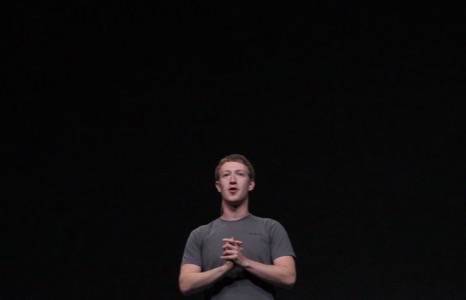
A smart friend of mine, a longtime industry veteran, once shared with me an interesting observation about the companies that dominate the computing industry. His idea was that there’s always a top dog, a company that Bigfoots over everybody else, instills fears in rivals, attracts the best talent and so on — but that with each turn of the wheel, each new ruler’s reign gets shorter and shorter. So: first came IBM, which ruled for 25 to 30 years, then Microsoft, which ruled for 12 to 15, then Google for six to eight years, and now Facebook, whose reign arguably began in 2010, when its traffic surged past Google’s and it bullied Zynga, its biggest partner, into accepting Facebook Credits.
But is Facebook’s reign already drawing to a close?
That’s the impression I got from reading a thoughtful blog post by YouTube exec Hunter Walk titled, “Trying to be the one true social graph is like trying to hold water in your hand.”
It’s a great piece and really worth a read. But the gist is that while it might once have seemed that Facebook could become the “one graph that rules them all,” that notion is already looking kind of silly.
One Social Graph To Rule Them All?
As evidence, Walk offers Facebook’s acquisition of Instagram and its cloning of Snapchat with a feature called Poke. (The scary thing about the Poke fiasco is not that Facebook ripped off an idea, but that it failed to kill Snapchat. If you’re really the top dog, that’s not supposed to happen.)
Walk’s premise is that the world keeps changing, and new stuff keeps bubbling up and becoming popular, and Facebook simply can’t keep buying or copying every new thing that comes along.
Facebook will “continue to be successful and useful for quite a long time – and they may even be the largest single graph – but it’s not going to be the only one of consequence,” Walk writes.
For one thing, each new generation wants to have its own service, Walk says. That rings true in my own experience. I was taken aback recently when my nephews, who are in junior high, told me that they and their friends all use Google+, not Facebook. Why? “It’s better,” they shrugged. They see Facebook as kind of a spammy, low-rent place for the hoi polloi and people who don’t know better (like parents and grandparents), while Google+ is for the cool kids.
Another factor, Walk says, is that instead of trying to shake off all the cruft that builds up in Facebook over time, it’s easier sometimes to just start over with a new network and create a fresh social graph.
The Hacker Way
So is Facebook over? Of course not. But is there a chance we’ll look back and say that 2012 or 2013 was the apogee? That doesn’t seem so far-fetched.
Especially since Facebook doesn’t exactly seem like the best-run or best-managed company on earth.
These guys live by the “Hacker Way,” which sounds cool, as does Facebook’s unofficial motto, “Done is better than perfect,” except that over time all that imperfect-but-done stuff starts to add up, and not in a good way.
Look at the year Facebook just had in 2012. First came a botched IPO marred by allegations of self-dealing and government investigations and a collapsing stock price. (Done? Check. Perfect? Um…)
Then came the “promoted posts” scheme that has angered brands and pushed Mark Cuban to direct greater emphasis to other networks.
“Find Friends Nearby” launched and then unlaunched. A mobile ad network launched and then unlaunched too.
The shift to mobile was listed as a risk in the S-1 for the IPO, but when that hurt the stock, suddenly mobile was being spun as a massive opportunity.
It seems not a week goes by without some kind of blow-up. Two weeks ago there was the kerfuffle over new terms of service at Instagram.
Today came news of a security flaw in a special New Year feature that made it possible for anyone to view other people’s private messages and photos. Facebook quickly plugged the flaw, but still.
Then again, what else do you expect? This is the epitome of the “hacker way.” It’s a great way to get things done quickly, but maybe not the best way to build a company that can last a long time.
So far Faceboook has managed to stay ahead of every new rival that comes along. But more will be coming this year, and next year and the year after that. At some point Facebook won’t be able to keep up.
For what it’s worth, remember my friend with the theory about ever-shorter reign of each new computer industry power? He thinks Facebook peaked earlier this year, on the day of its IPO.
Image courtesy of Reuters.
















